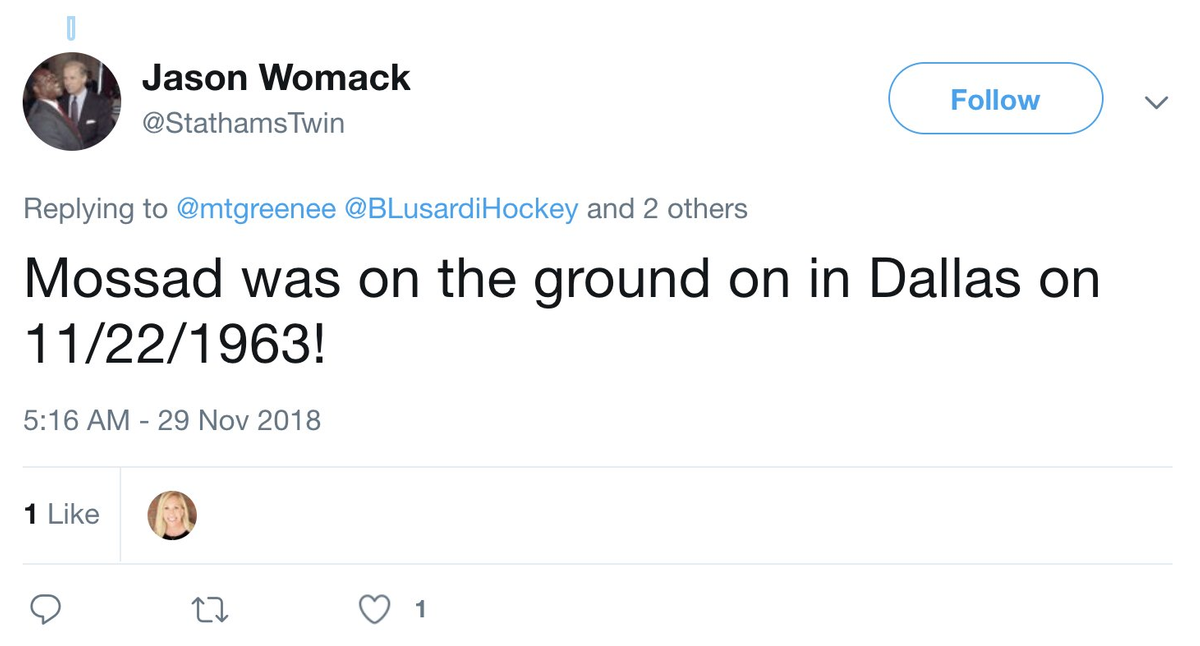Why Conspiracy Theorists Like Marjorie Taylor Greene Always Land on the Jews
Once you’ve decided that an invisible hand is behind the world’s problems, it’s only a matter of time before you decide it belongs to an invisible Jew




By now, whether you wanted to or not, you’ve probably heard of Marjorie Taylor Greene—the Georgia congresswoman who has never met a conspiracy theory she didn’t like... or tweet.
Greene has shared material related to QAnon, which posits that the world is dominated by a clandestine pedophile cabal. She has expressed 9/11 conspiracy theories, claimed Barack Obama was a secret Muslim, and said that the mass school shooting in Parkland, Florida, was a “false flag.” And she’s had a particular soft spot for wild anti-Jewish plots. She posted a neo-Nazi video that declared that “Zionist supremacists” were “breeding us out of existence in our own homelands.” She accused the Jewish Rothschild banking dynasty of setting forest fires with a secret space laser. And she even liked a tweet claiming that Israel’s Mossad was behind the assassination of JFK:

Understandably, the Conference of Presidents of Major Jewish Organizations has called for “a swift and commensurate response from Congressional leadership making clear that this conduct cannot and will not be allowed to debase our politics.”
Greene is far from the first anti-Semite in Congress, and she won’t be the last. Members of the body have even quoted the infamous anti-Semitic tract The Protocols of the Elders of Zion on the floor of the House of Representatives. Which raises the question: Why does this keep happening?
The answer is that as long as there are conspiracy theorists seeking scapegoats to blame for the nation’s problems, there will be anti-Semites. That’s because anti-Semitism is the world’s biggest and most durable conspiracy theory. It constructs itself as the ultimate explanation for how the world works, and blames powerful shadowy Jewish figures for all problems. This conspiratorial mindset invariably demonizes any Jews who accumulate wealth or status—from the Rothschilds to George Soros to the state of Israel—though it is not limited to them.
The reason figures like the Rothschilds or the fictional Elders of Zion remain salient targets even today is that any conspiracy theorist seeking someone to blame for the world’s ills is just one Google search away from centuries of literature telling them that that someone is “the Jews.” In other words, you might start out as free agent conspiracy theorist with no particular problem with Jews, but the deeper you dive into this world, the more likely you’ll ultimately land on Jewish people as the ultimate culprits. Many conspiracy theories have followed this trajectory to anti-Semitism, from David Icke’s bizarre ravings about Illuminati lizard people and “Rothschild Zionists” to QAnon today.
Simply put, once a person like Greene has decided that an invisible hand is behind the world’s problems, it’s only a matter of time before they decide it belongs to an invisible Jew.
Beyond explaining the thought process of cranks, why does this matter? Because it helps us identify people with anti-Semitic mindsets—and tells us how to reduce their numbers. As we’ve seen, individuals who are prone to conspiracy theories, whatever their personal ideology, are most susceptible to anti-Semitic appeals. Which means that a key component of any effort to counter anti-Semitism must entail combating conspiracy theories and the simplistic thinking that underlies them. Teaching people to understand the world in all its complexity, rather than default to superficial explanations, inoculates them against the reductive arguments of anti-Semites—no matter where they encounter them.
Until we do that, though, we could settle for not electing them to Congress.
Yair Rosenberg is a senior writer at Tablet. Subscribe to his newsletter, listen to his music, and follow him on Twitter and Facebook.